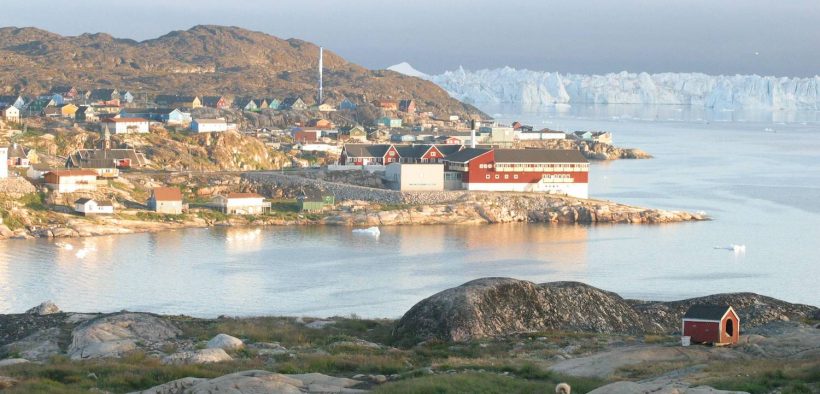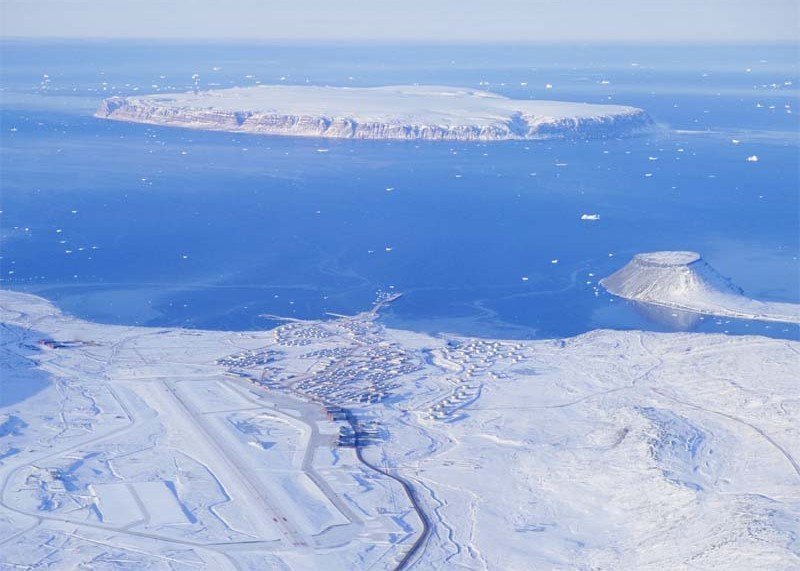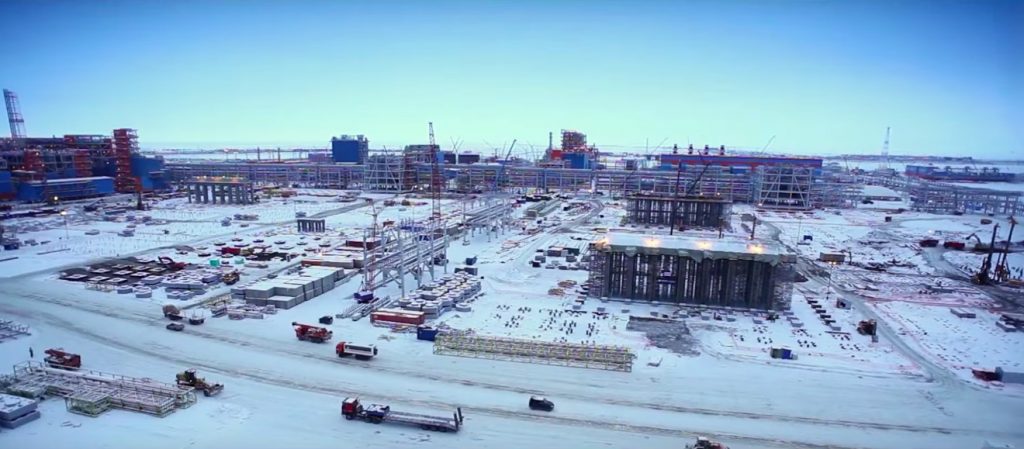‘Greenland Not For Sale’ as US, China, and Russia Vie For Arctic Influence

“The thought of Denmark selling 50,000 citizens to the United States is completely ridiculous.”
President Donald Trump privately expressed interest in buying Greenland, the world’s largest island, to White House aides and advisers, as the Wall Street Journal (WSJ) first reported last Thursday.
While the idea may seem ridiculous to some, Trump’s interest in the island shows how important the Arctic region, and Greenland specifically, is seen by the White House for its geopolitical significance and abundant natural resources. At the heart of the White House’s growing interest is likely concern that U.S. influence in the region is losing out to growing Chinese and Russian influence.
Greenland: A Brief Overview
Despite being the world’s biggest island, the region’s population is only 57,000 people. 80 percent of the island is blanketed by ice caps. The island’s capital is Nuuk.
Erik The Red, an exiled Icelandic killer, named the island Greenland, with hopes the place would attract settlers. According to Visit Greenland, the island’s tourism website, Greenland was, in fact, very green more than 2.5 million years ago until the island was frosted over for millions of years.
July is the only period when the temperature is above freezing. However, from May 25 to July 25 the sun shines all day long.
Greenland is part of the kingdom of Denmark, but the island governs via a socialism system that provides free education, healthcare, and pensions, supported by the Danish government.
Trump’s Greenland Buy
Trump floated the idea of buying Greenland at a dinner last year after hearing that it costs Denmark $500 million annually to keep Greenland afloat.
While the WSJ reported some of the President’s advisers saw the idea of acquiring Denmark’s autonomous territory as a joke, others took Trump’s words more seriously and White House counsel was assigned the task of looking into the notion.
The U.S. already has a small but significant presence on the island with the Thule Air Force base, the U.S.’ northernmost military base.

Aerial picture of Thule Air Base released by US gov.
The U.S. previously tried to buy the island in 1946, when then-U.S. president Harry Truman offered up $100 million to buy Greenland.
Trump is due to visit Denmark in September, but whether the purchase of Greenland will be on his agenda in his first visit to the Scandinavian nation is unclear.
‘Greenland Is Not For Sale’
Greenland’s Minister of Education, Culture, Church and Foreign Affairs Ane Lone Bagger appreciated Trump’s willingness to buy Greenland but adamantly stated that the island is not for sale.
“We are open for business, but we’re NOT for sale,” the minister told Reuters.
Danish politicians also ridiculed the idea, calling the U.S. President’s idea crazy.
“The thought of Denmark selling 50,000 citizens to the United States is completely ridiculous.”
“Out of all things that are not going to happen, this is the most unlikely. Forget it,” Rasmus Jarlov, a Danish politician from Conservative Party tweeted.
Recent Pompeo Trip Warns of Chinese, Russian Influence in Arctic
The likely reasoning behind Washington’s desire to buy Greenland is its growing concern for alleged Russian and Chinese aggressive behavior in the Arctic, a point that U.S. Secretary of State Mike Pompeo referenced during his May visit to Finland.
In statements prepped for Pompeo’s visit, Pompeo asked, “Do we want the Arctic Ocean to transform into a new South China Sea, fraught with militarization and competing territorial claims?”
“Under President Trump, we are fortifying America’s security and diplomatic presence” in the Arctic, Pompeo declared. “On the security side, partly in response to Russia’s destabilizing activities, we are hosting military exercises, strengthening our force presence, rebuilding our icebreaker fleet, expanding Coast Guard funding, and creating a new senior military post for Arctic Affairs.”
“The region has become an arena of global power and competition” due to vast reserves of oil, gas, minerals and fish stocks, Pompeo warned.
A senior State Department official also told Politico last May in reference to Pompeo’s visit, “Our competitors were just as emboldened by our retreat in the Arctic as they were in the Middle East and Asia. The prior administration didn’t raise the alarm. It’s been building up over many, many years because Russia and China saw a power vacuum.”
Washington also previously expressed concern over a Chinese firm’s proposal to build three international airports on Greenland, though the idea was ultimately canceled.
Greenland’s untapped mineral, energy, and fish resources are a major attraction to countries such as China, Russia, the U.S, and other technologically-advanced nations.
China’s Foray Into the Arctic
China began sending scientific missions to Greenland in 2004 and in recent years, a Chinese mining firm, partnered with an Australian firm, has gained mining rights for rare earth minerals in the Kvanefjeld project, as Japan Post reported.
According to Luke Coffey of the Heritage Foundation, a conservative think-tank, “China’s role in the Arctic has been more about expanding its economic influence, soft power,” Coffey of the Heritage Foundation told Japan Times.
Expanding on its Belt and Road Initiative, China’s global development infrastructure project, China unveiled a “Polar Silk Road” strategy to expand its influence in the Arctic region. The new initiative encourages the building of infrastructure and expanding commercial shipping routes.

The joint Chinese-Russian Yamal LNG project located in Sabetta at the north-east of the Yamal Peninsula, Russia. (Photo: YouTube)
Reuters also wrote, “Among its (China’s) increasing interests in the region is its major stake in Russia’s Yamal liquefied natural gas project which is expected to supply China with four million tonnes of LNG a year, according to the state-run China Daily.”
US Presence in Arctic
The United States’ most significant presence in the Arctic is the Thule Air Force base set up in 1943 to counter Soviet missiles during the Cold War. The base, with a staff of 600 personnel, still plays a pivotal role today.
“The early warning radar system in northern Greenland helps protect North America and is a key part of our missile defense apparatus,” Coffey told Japan Times.
“Luckily the U.S. is able to ensure and meet its security interests by maintaining this air base in northern Greenland. There’s no requirement to buy Greenland to keep America safe.”
However, despite all of the talk and apparent concern for growing Chinese and Russian influence in the arctic, Heather Conley, a specialist at the Center for Strategic and International Studies in Washington, told Japan Times the U.S. has taken little action.
The seemingly most significant action so-far by the U.S. has been an offer to put a U.S. ambassador in Nuuk for six months of the year.
“The administration has awoken to the Arctic as a geostrategic issue,” Conley said.
However, she added, “The rhetoric and the reaction — there is a very big gap.”












Narcissism, arrogance, greed, compulsive lying — the makings of “our” president. (Not mine.)